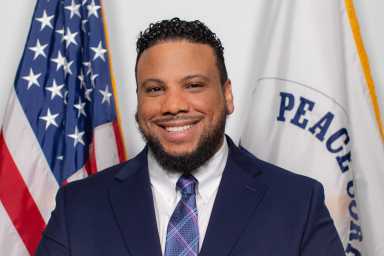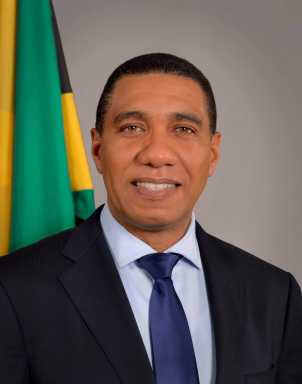Listeners:
Top listeners:
00:00
00:00
volume_up
chevron_left
-
play_arrow
RadioJLR Just Press Play
Trump’s Caribbean policy is a wake-up call for the diaspora in New York City

share
close
The Trump-Vance administration has made one thing clear in its first 100 days: the Caribbean is no longer a priority — unless it’s about deportations, trade crackdowns, or pulling aid. For those of us in New York City, home to the largest Caribbean diaspora in the United States, this isn’t just foreign policy. It’s personal.
Across Brooklyn, the Bronx, and Queens, Caribbean Americans are watching as the hard-won ties between our communities and our homelands are quietly unraveled. In the name of “America First,” this administration has paused critical development aid, accelerated deportations, and threatened economic stability in the region — all while ignoring the interconnectedness that binds the Caribbean and the U.S. together.
In January, President Trump signed Executive Order 14169, pausing all non-emergency foreign development assistance. For Caribbean nations that rely on U.S. support to strengthen healthcare, build climate resilience, and recover from natural disasters, this freeze is devastating. And while some in Washington frame this as a “cost-saving measure,” the reality is that pulling aid from small island nations doesn’t just hurt those abroad — it ripples through communities right here in New York.
Many of us have family back home. We send remittances, help rebuild after hurricanes, support small businesses, and advocate for immigration relief. When our home countries struggle, we feel it — emotionally, financially, and politically. When Trump cuts aid to Jamaica or the Dominican Republic, it means local clinics lose funding, jobs disappear, and people have fewer options — often leading them to migrate here under even more desperate conditions.
At the same time, the administration’s hardline immigration agenda is fueling fear and uncertainty in our boroughs. The threat of mass deportations looms large, especially for Caribbean nationals who are longtime residents but may lack full legal status. The administration’s calls to ramp up removals, including of individuals with minor or decades-old infractions, are tearing families apart and overburdening already stretched community resources.
Let’s be clear: this is not about public safety. It’s about racialized enforcement — and the Caribbean is a target. Earlier this year, U.S. Secretary of State Marco Rubio renewed his attacks on Cuba’s international medical diplomacy, accusing the country of “medical trafficking.” That might sound like foreign policy business, but here in New York, many of us grew up hearing stories of Cuban doctors saving lives across the region. These programs, while imperfect, filled critical gaps in underserved areas. Now, even those shared legacies are being politicized.
What’s most troubling, however, is that the administration’s stance doesn’t seem to recognize — or value — the deep-rooted relationship between the U.S. and the Caribbean. Over 4.5 million Caribbean immigrants and their descendants live in the United States. New York City alone is home to more than 1 million Caribbean Americans. We are educators, nurses, transit workers, business owners, and community leaders. We have contributed to this country in every way imaginable — and yet our histories, our struggles, and our futures are being sidelined.
This neglect doesn’t just show up in policy — it shows up in silence. When Caribbean leaders call for fairer trade terms or a voice in climate adaptation, Washington barely blinks. When the Dominican Republic faces rising energy insecurity or Haiti cries out for help rebuilding democratic institutions, U.S. engagement is inconsistent at best, and paternalistic at worst. And when our communities here in the U.S. advocate for more inclusive immigration reform, investment in Caribbean neighborhoods, or economic equity, we’re told to wait our turn — or worse, that our concerns don’t matter.
Well, they do.
The Caribbean is not a geopolitical afterthought — it is a vital part of the Americas. And the diaspora is not a silent voting bloc — we are a force that shapes elections, culture, and economies.
As someone with roots in the region, as a former senior Biden-Harris administration official, and as a proud New Yorker, I urge our elected leaders — especially in Congress and at the city level — to pay attention. We need public pressure to restore foreign aid to the Caribbean, protect immigrants from harmful enforcement actions, and build stronger economic and cultural partnerships that recognize our shared destiny.
And to our Caribbean American communities here in New York: this is our moment to organize, to speak up, and to remind this administration — and the next — that we are watching, voting, and building a better future for our families on both sides of the sea.
** Troy Blackwell is a former advisor to Vice President Kamala Harris, was President Biden’s Deputy Chief Communications Officer at the U.S. Department of Commerce, and served as the Global Spokesperson for the U.S. Peace Corps.
Written by: Adm
Rate it
Similar posts
© 2025. All Rights Reserved by Radio-JLR



Post comments (0)